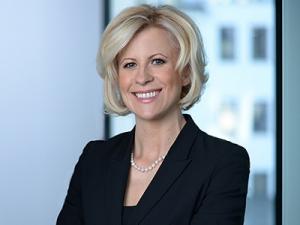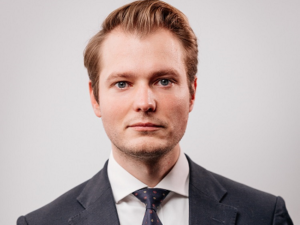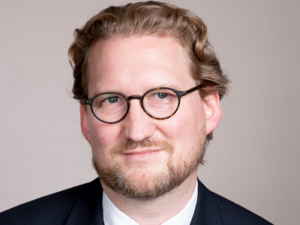Munich Regional Court sticks to its guns in PI dispute over Bayer’s Xarelto
The PIs preventing Accord, betapharm, 089 Pharm and Zentiva from selling generic rivaroxaban products in Germany remain in place. Munich Regional Court handed down its ruling last Friday, rejecting appeals from all four companies against its PI decision. Rulings on the appeals of three other generics companies are still pending.
18 June 2024 by Mathieu Klos
Bayer is fighting tooth and nail to defend its market share for blockbuster drug Xarelto. In May, Munich Regional Court issued preliminary injunctions prohibiting seven generics manufacturers from selling their products in Germany.
Under German procedural law, defendant companies can ask a chamber to review a PI decision. Only then can they appeal to a higher court. According to JUVE Patent information, all seven generic drug companies filed appeals against the PI decisions of Munich Regional Court.
On Friday 14th June, the court’s 21st Civil Chamber upheld the PIs against Accord, betapharm, 089 Pharm and Zentiva (case IDs: 21 O 3790/24; 21 O 4172/24; 21 O 4272/24 and 21 O 3127/24) after a six-hour oral hearing. Judge Georg Werner presided over the panel, with Julia Seiler-Bohn and Hubertus Schacht providing support.
New prior art
Accord, betapharm, 089 Pharm and Zentiva had challenged the patent in suit EP 1 845 961 with new prior art, among other things. The generics manufacturers had put forward information from a clinical study in the Netherlands against the granting of the patent. However, this did not convince the court.
Bayer sells its product under the brand name Xarelto. The dosage patent EP 961 is important in protecting the drug throughout Europe, as the basis patent EP 1 261 606 expired in December 2020. Subsequently, an SPC protected Xarelto until 1 April 2024. According to Statista, sales of Xarelto alone amounted to around €4 billion in 2023.
EP 961 is now intended to secure market exclusivity for Xarelto on behalf of Bayer. The patent has ‘Swiss form’ claims covering the use of rivaroxaban for the manufacture of a medication used in the treatment of thromboembolic disorders. The claims cover the use of a rapid-release tablet, which a patient can adminster once daily for at least five days.
Further hearings to come
Accord, betapharm, 089 Pharm and Zentiva may now appeal to the Higher Regional Court. Experts consider this likely, but the court will not hear the appeal before next autumn.
On 26 June, Munich Regional Court will hear Stada’s appeal against the PI. The court will then hear the appeal of AbZ Pharma and ratiopharm, both of which belong to the Teva Group, on 10 July.
Glenmark has also filed an appeal against the decision but the court has not yet scheduled a hearing.
However, it is uncertain whether the court will rule differently in these cases.
Revoked in UK and France
In the UK EP 961 is still invalid, after the UK Court of Appeal under presiding judge Richard Arnold upheld a first instance ruling (case ID: CA-2024-000891). Among others, Teva, Stada and Sandoz/Accord had filed nullity actions against the Bayer patent in the UK. In all six actions, Bayer counterclaimed for infringement, although the trial focused solely on the patent’s validity.
On 12 April the UK High Court, led by presiding judge Richard Hacon, found EP 961 invalid for inventive step over the prior art. Bayer can now still ask the UK Supreme Court to review the Court of Appeal’s decision.
In France, a first-instance court also declared the patent invalid. Bayer has appealed against this decision, but a ruling is not yet in sight.
In most other countries, however, courts declared EP 961 valid. Some of the appeals are still pending. In Germany, however, parties are still awaiting a final first-instance judgment by the Federal Patent Court. The court has already given Bayer a positive interim report in which it assumes the patent is valid. The court will hear the nullity case in June 2025 (case ID: 3 Ni 11/22).
Advisors remain the same
Regardless of the outcome of the proceedings in previous instances and countries, the companies involved have relied on their regular advisors since the dispute began. In last Friday’s hearing in Munich, Bayer defended the PIs with a lawyer team from A&O Shearman led by Stephan Neuhaus.
- Stephan Neuhaus
- Natalie Kirchhofer
- Arwed Burrichter
The team also included patent attorneys from Cohausz & Florack led by Natalie Kirchhofer and Arwed Burrichter.
Accord, betapharm and 089 Pharm filed the appeals against the PIs with different teams from the same law firm. While Hamburg-based Preu Bohlig partner Daniel Hoppe is representing Accord, betapharm is relying on Hamburg-based partner Carl-Alexander Dinges.
- Carl Alexander Dinges
- Konstantin Schallmoser
Paris-based Preu Bohlig partner Konstantin Schallmoser is representing 089 Pharm together with the patent attorney firm Hamm & Wittkopp in Hamburg.
Zentiva relies on Cordula Schumacher and Lisa Rieth from Arnold Ruess and patent attorney Robin Ellis from Reddie & Grose.




